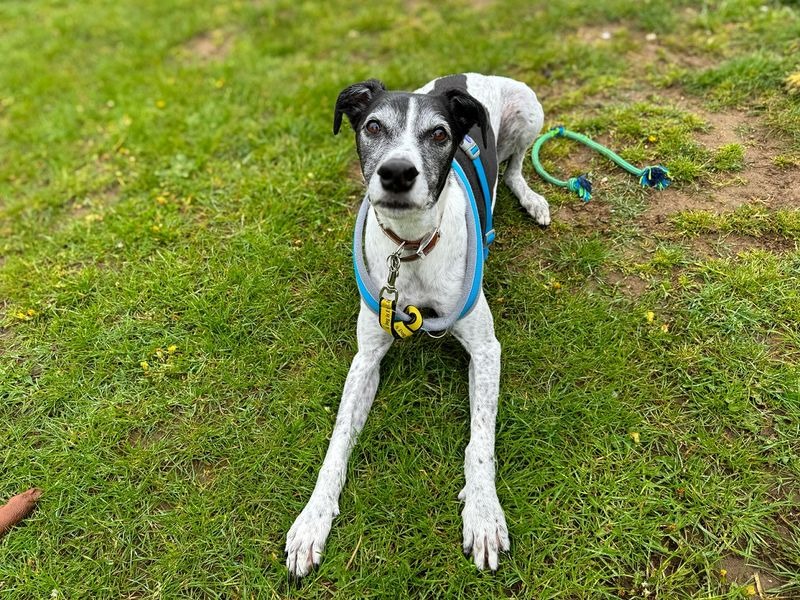Bringing a rescue dog into your home is a rewarding experience, but it can also come with challenges, especially if your new furry friend struggles with anxiety. Many rescue dogs have experienced past trauma, neglect, or abandonment, making them fearful and unsure in new environments. The good news is that with patience, consistency, and the right training techniques, you can help your anxious rescue dog build confidence and feel secure in their new home. Here’s a guide on how to train a rescue dog with anxiety and help them adjust to their new life.
Understanding Anxiety in Rescue Dogs
Before you begin training, it’s essential to recognize the signs of anxiety in your rescue dog. Anxiety can manifest in different ways, including:
Excessive barking or whining
Pacing or restlessness
Destructive behavior (chewing furniture, digging, etc.)
Shaking or cowering
Avoidance or hiding
Aggression due to fear
Loss of appetite
Recognizing these symptoms early on can help you tailor your training approach to meet your dog’s specific needs.
1. Create a Safe and Calm Environment
The first step in helping a rescue dog with anxiety is creating a secure and stress-free environment where they feel safe.
Set up a designated quiet space in your home where they can retreat when they feel overwhelmed.
Use calming aids such as a soft dog bed, dim lighting, and calming music.
Avoid overwhelming your dog with too many visitors or loud noises in the first few weeks.
Utilize pheromone diffusers like Adaptil to help ease anxiety.
2. Establish a Consistent Routine
Dogs thrive on routine, and a predictable schedule can help reduce their anxiety. Stick to a consistent feeding, walking, and sleeping schedule to help them feel more secure.
Feed them at the same times each day.
Take them for walks at regular intervals.
Keep bedtime and wake-up times consistent.
A structured routine helps build trust and makes the dog feel more comfortable in their new environment.
3. Use Positive Reinforcement Training
Training a rescue dog with anxiety requires patience and positive reinforcement rather than punishment. Here are some key training techniques:
Reward calm behavior with treats, praise, or toys.
Use short training sessions to avoid overwhelming your dog.
Teach basic commands like sit, stay, and come using gentle encouragement.
Avoid raising your voice or using negative reinforcement, as it can increase anxiety.
Celebrate small wins to build your dog’s confidence.
4. Socialization at Their Own Pace
Socialization is essential for a rescue dog, but it should be introduced gradually to prevent overstimulation.
Start with short, controlled exposures to new people, animals, and environments.
Allow your dog to observe from a distance before encouraging direct interaction.
Look for calm, friendly dogs for playdates rather than energetic or dominant ones.
Avoid crowded places initially, and slowly introduce them to different settings like parks, pet stores, or sidewalks.
If your dog seems overwhelmed, take a step back and proceed at a slower pace.
5. Address Separation Anxiety
Many rescue dogs suffer from separation anxiety due to past abandonment. Here’s how you can help ease their distress:
Start with short absences and gradually increase the time you’re away.
Leave comforting items like your worn T-shirt or a calming toy.
Use interactive toys like puzzle feeders to keep them occupied while you’re gone.
Avoid making departures or arrivals dramatic; stay calm and neutral.
If severe separation anxiety persists, consider consulting a trainer or veterinarian for additional guidance.
6. Exercise and Mental Stimulation
Regular exercise and mental engagement can help reduce anxiety in rescue dogs.
Take them on daily walks or play sessions to release pent-up energy.
Provide puzzle toys, snuffle mats, or treat-dispensing toys for mental stimulation.
Engage in scent games or training exercises to build confidence.
Consider activities like agility training or nose work to provide enrichment.
A well-exercised and mentally stimulated dog is less likely to exhibit anxious behaviors.
7. Be Patient and Give Them Time
Training an anxious rescue dog requires time and patience. Some dogs take weeks or even months to feel comfortable in their new home. Progress may be slow, but celebrating small improvements will keep you motivated.
Allow them to approach new situations at their own pace.
Understand that setbacks may happen, and that’s okay.
Keep reinforcing positive behaviors and building trust over time.
8. Consider Professional Help if Needed
If your rescue dog’s anxiety is severe or not improving despite consistent training, seeking professional help may be beneficial.
Work with a certified dog trainer or behaviorist who specializes in anxious dogs.
Consult a veterinarian to rule out any medical issues contributing to anxiety.
Explore natural calming supplements or medications if recommended by a vet.
Professional guidance can make a significant difference in helping your dog adjust successfully.

Final Thoughts
Training a rescue dog with anxiety is a journey that requires patience, love, and commitment. By providing a safe environment, establishing a routine, using positive reinforcement, and gradually introducing socialization, you can help your rescue dog feel more at ease. Remember, every small step forward is a victory, and with time, your furry companion will grow more confident and happy in their new home.
If you have experience training a rescue dog with anxiety, share your tips in the comments below! Together, we can help more rescue dogs find the love and security they deserve.
 Add Row
Add Row  Add
Add 




Write A Comment